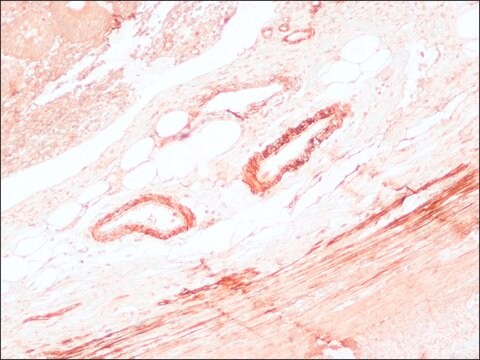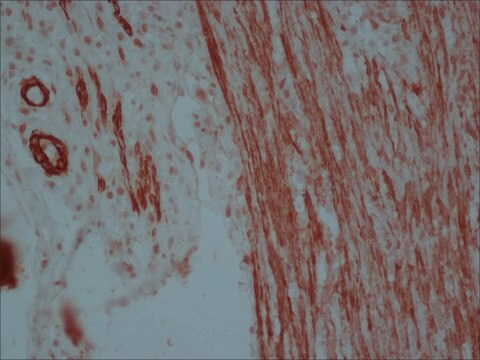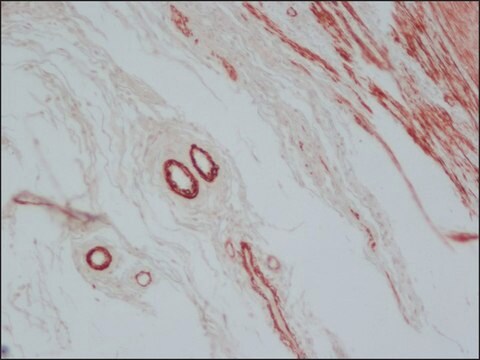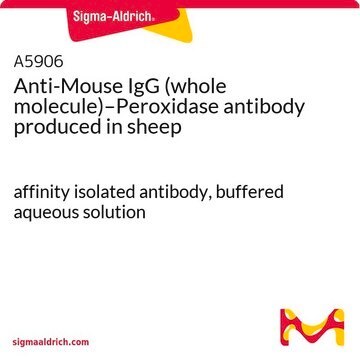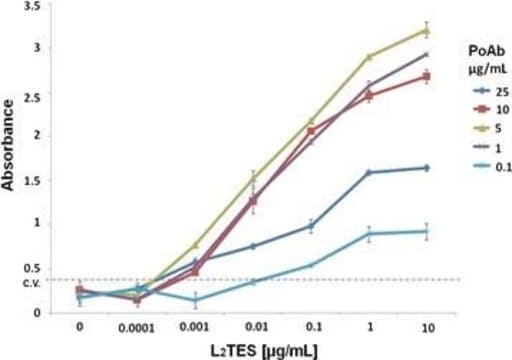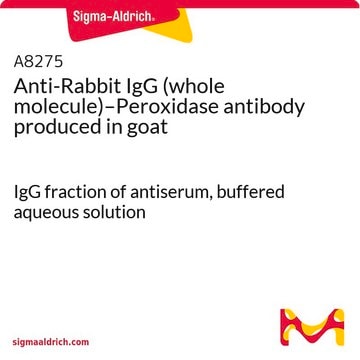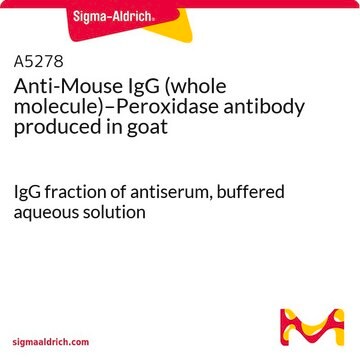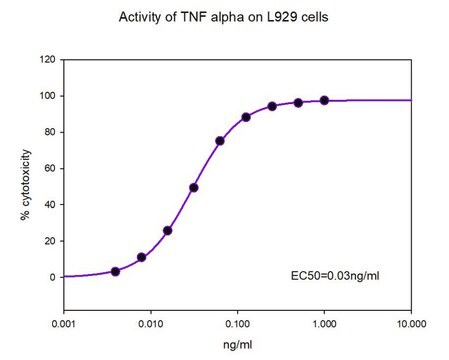A9309
Anti-Mouse IgG (Fc specific)–Peroxidase antibody produced in goat
affinity isolated antibody, buffered aqueous solution
Synonym(s):
HRP Goat Anti-Mouse IgG (Fc specific)
About This Item
Recommended Products
biological source
goat
Quality Level
conjugate
peroxidase conjugate
antibody form
affinity isolated antibody
antibody product type
secondary antibodies
clone
polyclonal
form
buffered aqueous solution
technique(s)
direct ELISA: 1:40,000
immunohistochemistry (formalin-fixed, paraffin-embedded sections): 1:200
western blot: 1:40,000-1:80,000 using total cell extract of HeLa cells
shipped in
dry ice
storage temp.
−20°C
target post-translational modification
unmodified
Looking for similar products? Visit Product Comparison Guide
General description
Application
- in immunoblotting
- in immunohistochemistry
- in enzyme linked immunosorbent assay (ELISA)
- in agar block precipitin titration
- in western blotting
- in assessment of in vitro poly(ADP-ribose)polymerase (PARP) activity
Biochem/physiol Actions
Horseradish Peroxidase (HRP) is an enzyme that catalyzes the conversion of chromogenic substrates such as o-phenylenediamine (OPD), 4-chloro-1-naphthol 3,3′,5,5′-tetramethylbenzidine (TMB), 3,3′-Diaminobenzidine (DAB) or 2,2′-azino-bis(3-ethylbenzothiazoline-6-sulphonic acid) (ABTS); chemiluminescent substrates such as CPS-3 (enhanced luminal) and fluorogenic substrates such as Ampliflu™ Red into detectable chromophores, light-emitters or fluorescers, respectively.
Other Notes
Physical form
Preparation Note
Legal Information
Disclaimer
Not finding the right product?
Try our Product Selector Tool.
signalword
Warning
hcodes
Hazard Classifications
Skin Sens. 1
Storage Class
12 - Non Combustible Liquids
wgk_germany
WGK 2
flash_point_f
Not applicable
flash_point_c
Not applicable
Choose from one of the most recent versions:
Certificates of Analysis (COA)
Don't see the Right Version?
If you require a particular version, you can look up a specific certificate by the Lot or Batch number.
Already Own This Product?
Find documentation for the products that you have recently purchased in the Document Library.
Customers Also Viewed
Our team of scientists has experience in all areas of research including Life Science, Material Science, Chemical Synthesis, Chromatography, Analytical and many others.
Contact Technical Service